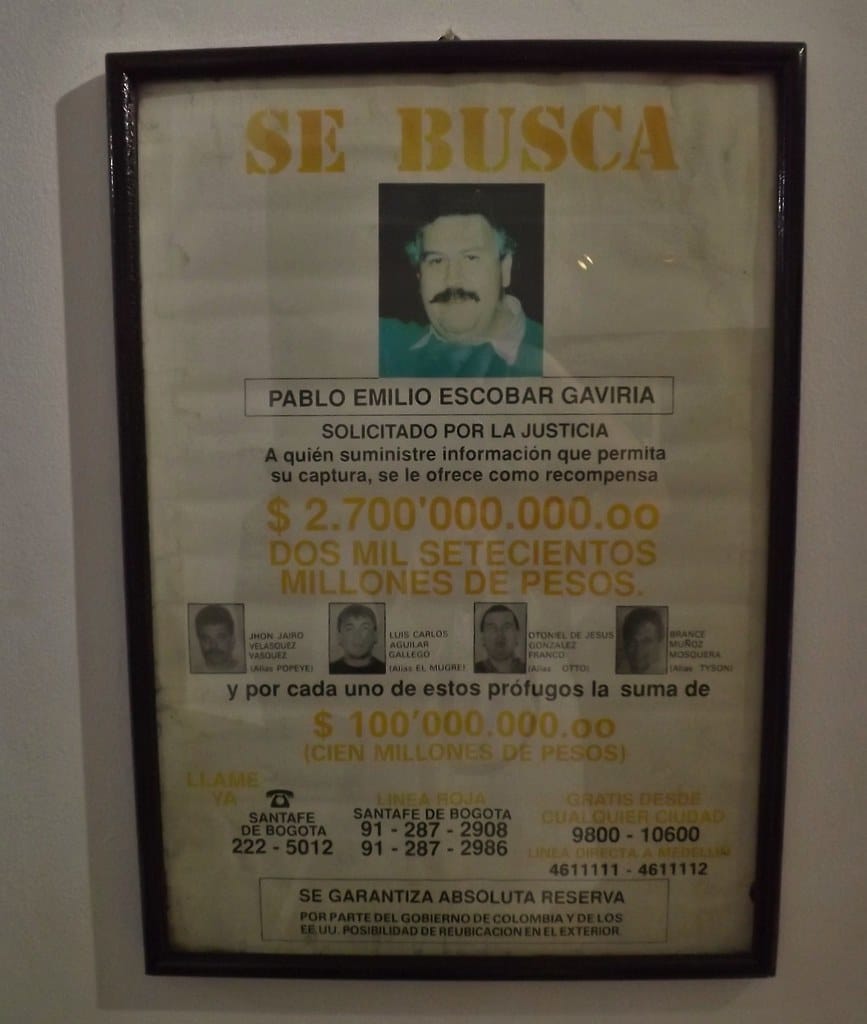A federal judge in Southern Florida recently dismissed a copyright infringement case involving the popular Netflix show “Narcos.” See Miami Herald report here. The case was filed by author and journalist, Virginia Vallejo. Vallejo claimed that the show’s writers and producers copied parts of her book/memoir “Loving Pablo, Hating Escobar.” In her book, Vallejo writes about many things including her romance with Pablo Escobar, a notorious Colombian drug-lord. The case provides interesting legal lessons concerning copyright law. The case is Vallejo v. Narcos Production, LLC, Case No. 18 CV 23462-RS (S.D.Fla. November 8, 2019).
The first lesson is that historical facts are not copyrightable. In her lawsuit, Vallejo claimed that she had a copyright to certain historical facts about meetings and events that were only first reported in her book. However, copyrights do not extend to historical facts and data. Basically, under copyright law, no one can claim copyrights as to historical facts.
In the US, copyrights are governed by the Copyright Act. See 17 U.S.C. §101 et seq. Copyrights protect ORIGINAL works of authorship. Without question, Vallejo’s book is protected by copyright law. However, the descriptions of historical facts in her book are not. As the US Supreme Court has explained, this is because facts do not “owe their origin to an act of authorship.” Burrow-Giles Lithographic Co. v. Sarony, 111 U. S. 53 (US Supreme Court 1884). This is true even if an author — like Vallejo — may have participated in the historical events and may be the first person to report those particular facts. Historical facts are not created or made or originated. Rather, they are discovered. Copyright law does not protect facts that are discovered.
Another lesson from the case is that the particular manner in which historical facts are laid out by an author CAN be original and, therefore, protected by copyright law. But, if the details are sufficiently different in another author’s description of the events, then no copyright infringement has occurred. In Vallejo’s case, she also argued that the producers and writers of “Narcos” show copied the MANNER in which she described the historical events in question. In particular, Vallejo claimed that the show appropriated her descriptions of a meeting she attended and a romantic scene between her and Escobar that involved use of a revolver.
In the end, however, the judge determined on summary judgment submissions that Vallejo’s claims had no merit. The court concluded that the television presentations of the historical events were sufficiently different so that there was no copyright infringement. For example, in her book, Vallejo describes a meeting between Escobar and a guerrilla leader with Vallejo being present. In that meeting, Escobar hired the guerrilla to attack the judicial offices of the Colombian Supreme Court to destroy evidence related to legal proceedings against Escobar. The Netflix version of the meeting was historically accurate in that it depicted a meeting between Escobar and a guerilla leader. However, the court found that the Netflix version of the meeting was substantially different than the one described in Vallejo’s memoir. The court noted that the dialog was different, the tone and tenor were different, and that a different woman was present at the meeting (not Vallejo). The court also highlighted differences in the settings and background. With respect to the romantic scene, the court noted similar types of differences. It was true that the Netflix version included use of a revolver, but that, by itself, was not an original concept that was copyrightable. As one example, the court noted that, in the book, Vallejo is described as not being fearful of Escobar’s use of the revolver while, in the Narcos version, the female character is shown as being afraid and victimized. In the end, the court held that no copyright infringement had occurred, and Vallejo’s case was dismissed.
If you have questions about protecting your copyrights and other intellectual property, contact the copyright lawyers at Revision Legal at 231-714-0100.




